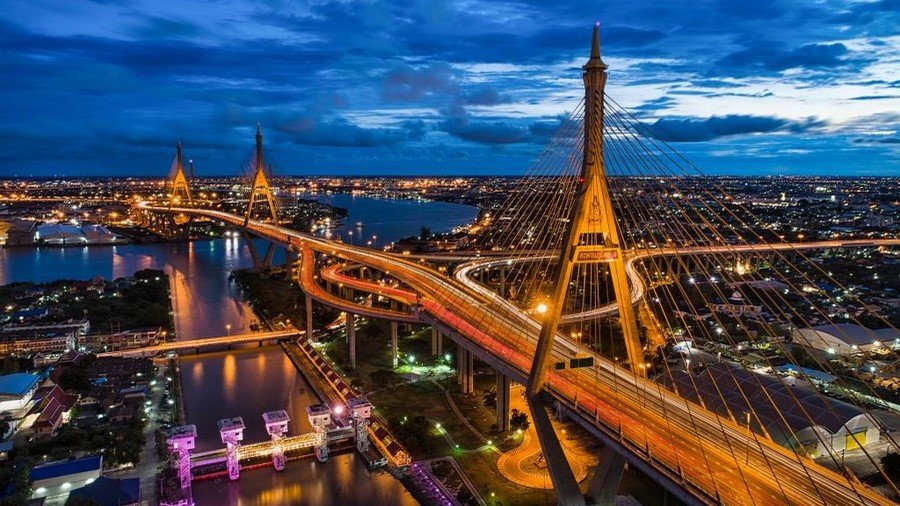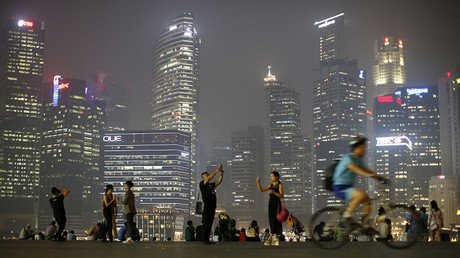US-China trade war could create winners in Southeast Asia – report

The trade war between Washington and Beijing is pushing many global companies to rethink their supply chains. As a result, a bloc of Southeast Asian countries stands to benefit tremendously, according to consulting firm Bain & Co.
In the short term, there will be an adverse effect on the region as an exporting base for the world and for the US in particular, said Satish Shankar, Bain & Co’s managing partner for Southeast Asia.
“Certain intermediate exports that go into China, and then onto the US, are going to be impacted in industries such as textiles and electronics,” Shankar told CNBC. “However, in the long term, we feel pretty confident that ASEAN [The Association of Southeast Asian Nations] is a very attractive alternative supply chain base for companies looking to diversify away from China,” he added.
Also on rt.com Russia and Singapore ink $1bn worth of investment deals at ASEAN SummitASEAN is made up of 10 countries in the region including Singapore, Thailand and Vietnam.
Bain & Co predicts that as companies consider moving their supply chains into Southeast Asia, small and medium enterprises in the region will adopt more technologies into their daily operations that could potentially create a $1 trillion opportunity.
Even if trade tensions eventually simmer, companies would still try and shift some of their supply chains to Southeast Asia, according to Shankar.
That’s “for two reasons,” he said, explaining: “One is that the process is already underway and the experience companies are having in places like Vietnam and Thailand have been positive. Second is, it’s just good business practice to ensure that you are diversified and you don't have concentration risk with things like your supply chain.”
Shankar said that in the future, companies would shift to “distributed supply chains,” where they would have multiple sources of supply for a particular product.
The presence of dynamic companies makes ASEAN a “very legitimate supply chain base,” the expert said. “It is the fifth-largest economic bloc, comparable in size to the UK and India. It has been growing at 4.5 to 5 percent, there’s a lot of (foreign direct investments) coming into the region.”
Shankar noted that each country in the region had a different specialty, making an example of Thailand which has a strong automotive sector that can become an alternative supply base for companies in that space. Companies would also stand to benefit from a “strong domestic demand in the region,” he said.
For more stories on economy & finance visit RT's business section
















